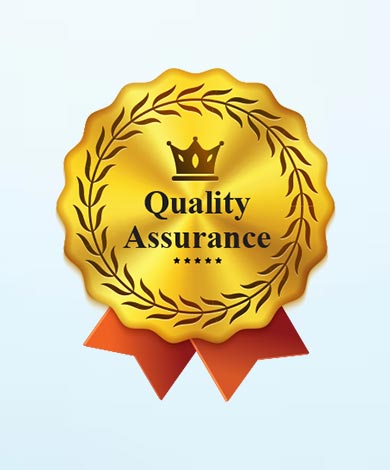IQAC (Internal Quality Assurance Cell)

Vision
To cultivate a culture of excellence through continuous quality improvement and innovation in teaching, learning, research, and administration, thereby creating an environment that nurtures holistic development, inclusivity, and sustainable growth.
Mission
To develop and implement a consistent and effective quality assurance framework that strengthens and enhances the university’s teaching-learning processes, research activities, and administrative practices.
Short-term Goals of IQAC (Next One Year)
- Curriculum Enhancement: Revise course content in the short term to address emerging industry needs and comply with NEP 2020 directives.
- Internal Audits: Conduct regular audits of departments and courses to ensure alignment with academic quality benchmarks.
- Skill Development Programs: Conduct training sessions on soft skills, digital competencies, and entrepreneurship to enhance student readiness
- Digital Transformation: Strengthen the use of LMS platforms and digital resources to enrich teaching and learning
- Faculty Development: Conduct faculty development workshops on outcome-driven education, creative pedagogy, and digital teaching tools.
- Stakeholders Feedback Mechanisms: Launch improved feedback systems for quick evaluation of teaching quality and overall stakeholder’s satisfaction.
- Accreditation of the University: "Undertake Binary Accreditation of the university in alignment with the directives of NAAC policy.
- Ranking Framework: Participate in NIRF and other rankings in the Management and Engineering domains.
- NEP Implementation: To implement Phase-I of NEP-2020. To complete ABC IDs and uploading of results in Digi-locker.
Long-term Goals of IQAC (Next Five Years)
- Academic Flexibility: Implement an effective and institution-wide Choice-Based Credit System (CBCS) to enhance academic flexibility
- Innovation & entrepreneurship Hubs: Establish interdisciplinary research centres and incubation hubs to promote innovation and entrepreneurship.
- Alumni Engagement: Strengthen alumni engagement to provide mentorship, secure funding, and facilitate industry collaboration.
- Holistic Student Development: Develop comprehensive, long-term programs to nurture leadership, integrity, and a sense of global responsibility among students.
- Collaborative Learning Ecosystem: Establish strong ties with national and global universities to support exchange opportunities, combined degree programs, and research collaborations
- Lifelong Learning Platforms: Establish digital learning platforms delivering certification programs and online courses for alumni and professionals, ensuring sustained university engagement.
- NEP 2020 Full Implementation: Achieve thorough compliance with NEP 2020 guidelines, covering multidisciplinary learning and vocational skill development.
- Social Outreach Program: Scale community outreach programs for wider impact on societal development, with a focus on education, health, and social welfare.